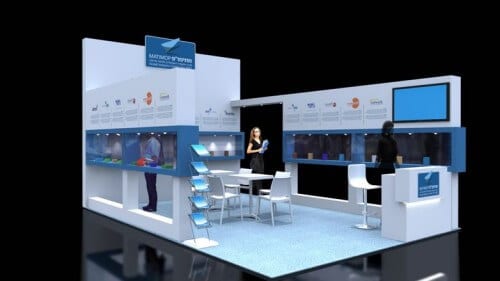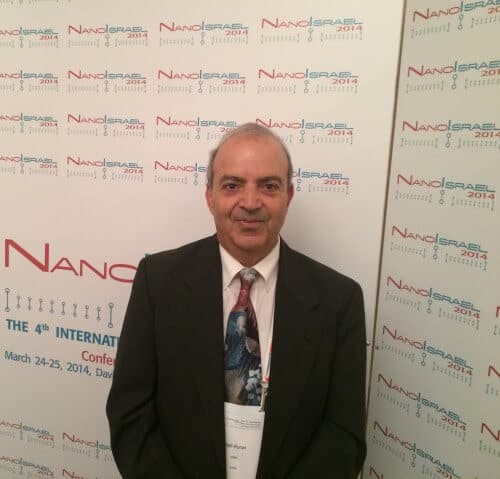Participants from dozens of countries will arrive in Tel Aviv, in February 2016, to take part in the "Nano-Israel 2016" conference and the related exhibition, to be impressed by the most advanced technologies in the field, to examine scientific achievements and to consider investment options

The "Nano-Israel 2016" conference and the associated exhibition will be held in February 2016. The conference is an international event dealing with innovations and business opportunities in the fields of materials, medicine, mobile, aviation, semiconductors and other innovative industrial fields. Among the participants from Israel and the world, it will be possible to find venture capitalists, private funds, institutional and corporate investors, regulatory, technology and development personnel, government decision makers, as well as academics, scientists and researchers.

The previous "Nano-Israel" conference, held in 2014, attracted 1000 representatives from Israel and the world. The upcoming conference will be held between February 22-23, 2016, in the Smolarch Auditorium, at Tel Aviv University, and according to estimates, over 1200 participants from dozens of countries will attend. The curators of the conference are Prof. Uri Cheshnovsky, from Tel Aviv University, one of the top nanotechnology researchers in Israel, and winner of the Weizmann Science Prize; Prof. Yael Hanin, head of the Center for Nanoscience and Nanotechnology at Tel Aviv University, a physicist who focuses on the development of electronic nanodevices and Rafi Kuriat, a partner in the Israeli national nanotechnology project and industry leaders.
"Israel is known for its achievements and innovation in the nano field," says Koriat. "Over the past decade, Israel has positioned itself as a nanotechnology leader, providing new and exciting possibilities in the fields of medicine, mobile, defense and other areas of the high-tech industry. At the conference and the accompanying exhibition, it will be possible to get an impression of the scientific achievements and consider investment options.'
impact on all areas of life
According to Kuriat, nanotechnology has an extremely impressive range of potential uses. A background document compiled by the US National Nanotechnology Initiative (NNI) includes a list of topics worth a look. According to the list, there are many areas in which it will be possible to find the impact of today's research on the technological and scientific aspects of our lives. For example, it will be possible to design stronger, lighter, harder, self-repairing, and safer materials, it will be possible to carry out nanometric processes related to the quality of the environment, perform medical treatments and diagnostics, preserve and store energy, build tiny spaceships for research and to utilize space, create biological sensors to detect infectious diseases and biological threats and develop a host of applications in the fields of electronics, energy, and even national security. A real miracle drug.
Products that include nano-technical components are already on the market; CD drives whose read heads contain nanometric systems that enable reading and writing at a much higher density than the previous, micrometric drives can be noted among them. Nanometric components also improve the properties of various textiles and plastic materials, such as those used to make athletes' clothing in order to reduce water or wind resistance to their movement.

With nanotechnological methods it will be possible to build many products whose properties are similar to those of other products that have been serving us for a long time, but thanks to nanotechnology they will be smaller and cheaper. For example, the field of computers, or a jet engine made of a giant single crystal. In the military field, there is talk of tiny drones that will not be detectable, and will be able to provide their senders with information about the battlefield through their sensors. The Israeli company Pelsen - Thortech from Kibbutz Sassa already today supplies nanotubes for protecting vehicles and camouflage kits, Rafael and the TEA, use nanomaterials and nanotubes to reduce weight and at the same time increase mechanical strength, two very significant issues in the aviation and missile industries, and the Elbit company has developed cables The ones that optimize the energy consumption for starting off-road vehicles and others, thereby extending the life of the battery.
Most of the writers on the field often point to the integration of nanotechnology with biology and medicine, as one of the more promising directions of scientific development and perhaps closer to the present. Nanotechnology has extensive applied potential in diagnostics and targeted medical treatment. Transferring drugs to specific sites, targeted non-invasive tests, and more. On the other hand, biology provides the only examples and tools available to us for construction
